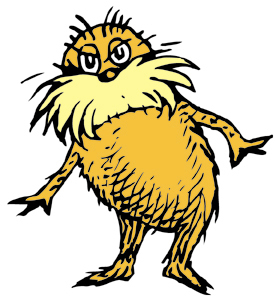Good Work Gallery is pleased to present The Lorax Poems, a group exhibition curated by Zach Smith, featuring:
Michael Assiff
Morgan Blair
Mikkel Carl
Carson Fisk-Vittori
Ani Geragosian
Ella Goerner
Cecilia Salama
Jo Shane
Opening October 3rd, 6pm to 9pm
The show navigates the space between science and poetry. Subsisting off a media diet by turns populist and academic, it highlights artists for whom environmental awareness takes myriad forms. Hopefully, here, a paean to the natural world emerges.
“All day most days we adapt in microscopic ways, folding our habits in upon themselves. When possible we entertain eclectic viewpoints, scan bursts of image and descriptions, flit through global events like specks on a windshield. Through artisanal everything and a deluge of apps we enter feedback loops of self-fulfilling innovation. We teeter on the edge of a legitimately vicious cycle: changing how we change, improving on ways we improve. And if it was too late we probably wouldn’t know… which all sounds pretty pessimistic, as it’s intended to.
We need tons of inconvenient truths constantly hurled at us, even as time renders most of them unfounded, bogus and annoying. A select few may turn out very real, to resonate and shake our plodding dialogue into new shapes, which art as a micro-world and the real world as itself need to thrive.
Unfortunately, full-blown jeremiads don’t do well with audiences. So to protect this one from the dull ears it might fall on otherwise, one revered literary figure comes to mind.
The Lorax is forest entity famous for saying things nobody wants to hear. A living torrent of dissent, this Dr. Seuss masterstroke eventually becomes so grating that self-banishment seems like the right thing to do. He disappears forever at which point everyone misses him. Turns out he was right about a lot of stuff, chiefly that the natural world demands our full attention.
This exhibition gathers, far and wide, the work of artists who encounter nature as built on something akin to poetry, more than just a string of networks. To get there though, they embrace absolutely current science and up-to-date academic research. The cohort’s output also speaks of lucid familiarity with hypermodern, urbane lifestyles. So, a rare balance is struck here between sublime encounters with the uncanny and snapshots of our feverish half-digital everyday, all maintaining a taste for empirical detail. This omnivorous approach opens new avenues for brazen lateral conjecture and hermetic leaps of faith.
It’s an approach that found a patron saint in the poet Bill Knott (1940-2014), who remained polarizing across decades of a singular literary career. He lobbed disruptive game-changing ideas into the American poetry community, while moving further and further off the grid. The effect was of digging one’s heels in so far they stick out the other side. By warping contemporary views of authorship and the tenuous state of publishing to his own ends, Knott pioneered confessional transparency, fearless of oversharing.
With Knott and The Lorax as spirit animals, these works together might suggest an ethereal register of protest, at which one could speak on issues too abstract to gain their footing in a larger dialogue. They could be ideas too far in the future or not widely understood enough, waiting on a dedicated few to translate. This goes for art, technology, the natural world, and all combinations thereof. For example, we continue fetishizing speed, so why get equally high off stillness? Neither is any more intellectually rigorous than the other. Not to mention both waste labor, resources, and time. The sun also rises on a global, virtual city that, while evolving exponentially, feels it doesn’t need to sleep. Hopefully, throughout The Lorax Poems expertise emboldens impulse, overflowing into strategies of note to those who would ‘speak for the trees.'” -Zach Smith
***
